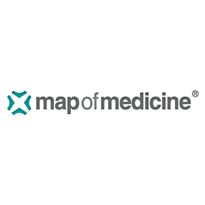Research fills in Map of Medicine
- 21 June 2012

About half of GPs and a quarter of community staff are using the care pathways tool Map of Medicine, new research suggests.
Map of Medicine is a collection of evidence-based practice-informed care maps, rolled out to GPs and community users as part of the National Programme for IT in the NHS.
Stockport NHS Foundation Trust IT Services manager Colin Cohen has been studying the Map of Medicine project as part of a thesis for his doctorate.
Phase one of his research involved sending an online questionnaire to GPs and community health staff in NHS Thameside and Glossop, which showed that 55% of GPs used Map of Medicine and 28% of community staff.
A similar survey about a year before revealed the same results. Cohen was surprised at the level of usage and felt 55% was “better than I might have thought."
He explained that his area might have higher usage than others because Map of Medicine was given a “big push” about a year ago by the primary care trust.
Cohen said he chose to study Map of Medicine because it is a piece of the national programme that has not been subject to much research.
“From the NPfIT point of view the project was pretty well finished on the ground, but people don’t really know much about whether the target users use the system or not,” he said.
There are no official figures available because strategic health authorities do not have to report usage of the system, unlike other programmes such as Choose and Book.
“People are a bit in the dark about whether GPs use it or ignore it, and if they ignore it why they ignore it,” Cohen said.
The research revealed no notable difference in usage across different age groups of GPs, but amongst community users the system was more likely to be used by staff over 40.
When asked what they use the system for, 70% of survey respondents said they used it to look up pathways. Many also used it to look up referral forms or to show a patient the pathway.
Other systems that respondents reported using to support evident based practice included the National Insitute for Health and Clinical Excellence site or app (mentioned by 70%), Google (20%) and the GP notebook (50%).
Health professionals who did not use the system said it needed to be more accessible – perhaps by having it run alongside their clinical software. Others did not like the look and feel or said they did not have time for it in a short consultation.
Cohen said there was no evidence for the impact of Map of Medicine, such as whether it reduces referrals to secondary care and associated costs.
His research suggests that while some local communities had “picked it up and run with it," others did not find it useful at all.
“It wouldn’t be fair to say it’s a complete failure, but it’s also not a great success, it’s really somewhere in the middle,” he said.
“If people have some enthusiasm, drive and clinical people behind it then it’s got a good chance of success; but you have to keep working at it to make it successful.”
Cohen said he had been unable to find out how much has been invested in the programme by the government.
The next phase of his research involves face-to-face interviews with GPs and community staff. The final report will be submitted early next year.
Read more about the progress of the national projects set up by the National Programme for IT in the NHS in Insight.




